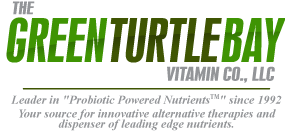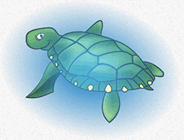Prostate
|
The following is excerpted with permission from a book written by Dr. Richard Podell, M.D. This information has been helpful to thousands of people in the past, but is not meant to replace your physician. Be sure to check with your physician before undergoing any change in diet. ©1993 The Podell Medical Center, all rights reserved. May not be reproduced in any form without prior written permission. (see Podell Medical Center) I first met 64-year-old Henry Reuss in the emergency room at 3 A.M. He was in agony because he could not urinate. For several years his enlarging prostate had slowed his urine flow. An extra-dose of allergy medicine had finally made it impossible to urinate. A catheter in Henry’s bladder relieved the acute swelling, and over the next few weeks his urine flow returned to its former state–passable but not great. Henry was dead-set against an operation, and neither of us were thrilled by the standard “prostate-shrinking” medicines. However, we were both encouraged by the very large number of studies which seemed to show that nutritional and herbal approaches could be effective. Within 3 months of starting our “alternative medicine” program Henry noted substantial improvement. His urology consultant measured his urine flow before and after and was amazed at the improvement. Since then, more than two years ago, Henry’s prostate symptoms have remained very mild. Benign prostatic hypertrophy is a non-cancerous enlargement of the prostate that affects most men from age 50 onward. The urine outflow tube passes through the prostate, so an enlarging prostate can compress it, reducing urine flow. Early symptoms can include difficulty starting urination, decreased force of urination, frequent urination, or increased urination at night. More advanced cases can cause back-pressure damage to the kidneys, or complete obstruction of urine flow. Male hormones stimulate prostate growth, especially one known as DHT (dihydrotestosterone). Proscar is a medicine which blocks the production of DHT. It was introduced with great fanfare, but seems to provide relief for BPH (benign prostatic hypertrophy) in only a minority of men who take it. Prazocin, a high blood pressure medicine, relaxes the tension within the prostate moderately and improves urine flow. Each year about 400,000 American men undergo an operation to relieve BPH. Impotence and urine incontinence are common complications.
Definitely Effective: Avoid medicines that obstruct the prostate Limit alcohol Probably Effective: Low fat, low cholesterol diet
Avoid medicines that obstruct: Many medicines including antihistamines, decongestants and anti-depressants can tip a partly obstructed prostate into sudden urine obstruction. Ask your doctor when you receive a new drug if it will obstruct the flow of urine (also double check prescription or over-the-counter drugs in one of the consumer-oriented drug reference books). Limit Alcohol: Alcohol acutely promotes prostate swelling. Low fat, low cholesterol: Animal fats stimulate prostate cells to increase. So does cholesterol. Although not proved, some experts have speculated that taking cholesterol-lowering drugs might be an indirect way to help the prostate.
Definitely Effective: Pygeum 50-100 mg tree bark derivative; twice daily, main ingredient: beta-sitosterol Probably Effective: Possibly Effective: Selenium 50 mcg
Amino Acid Combination: At least 3 controlled studies show that the combination of L-Alanine, L-glutamic Acid and L-glycine helped the subjective symptoms of prostate enlargement or objective measures of urinary flow. Essential Fatty Acids: Unsaturated essential fatty acids such as most regular vegetable oils, primrose and flaxseed oil, tend to inhibit prostate growth. One open (not double-blind) study found improved symptoms and better urine flow after taking vegetable oil supplements. Flower Pollen: Several controlled studies of Cernilton, a standardized flower pollen extract, improved urine flow in several controlled studies. There were very few side effects. Pygeum: Pygeum is derived from the bark of the African evergreen tree. Its main ingredient is beta-sitosterol, a plant product known for its cholesterol-lowering effect. Many well-designed studies show Pygeum’s relieving urine obstruction better than a placebo and about as well as Proscar. One recent study of 200 men, found that pygeum increased urine flow velocity by about 50%. Four to six weeks of treatment was needed to see the beneficial effect. Saw Palmetto: The herb Saw Palmetto, like Proscar, blocks the formation of the hormone DHT. Most studies show it to be at least as effective as Proscar, although a few studies failed to show an effect. Saw Palmetto probably has fewer side-effects than Proscar and is much less expensive. Benefit is seen within 45 to 60 days. Saw Palmetto and Pygeum can be taken together. One study showed Saw Palmetto being moderately more effective than Pygeum. Stinging Nettles (Urtica dioica): This herb may block certain effects of the hormone, DHT, at the cellular level. Many open and a few double-blind studies show fewer symptoms and better urine flow. Selenium: The mineral cadmium stimulates the growth of prostate tissue, while selenium (at proper concentrations) inhibits this effect. Zinc: The prostate contains a higher concentration of zinc than any other organ in the body. Zinc inhibits the activity of the enzyme that makes the hormone DHT level. There have been only a few studies of treating BPH with zinc. However, their results are encouraging.
Also consider:
This information has been helpful to thousands of people in the past, but is not meant to replace your physician. Be sure to check with your physician before undergoing any change in diet.
|




